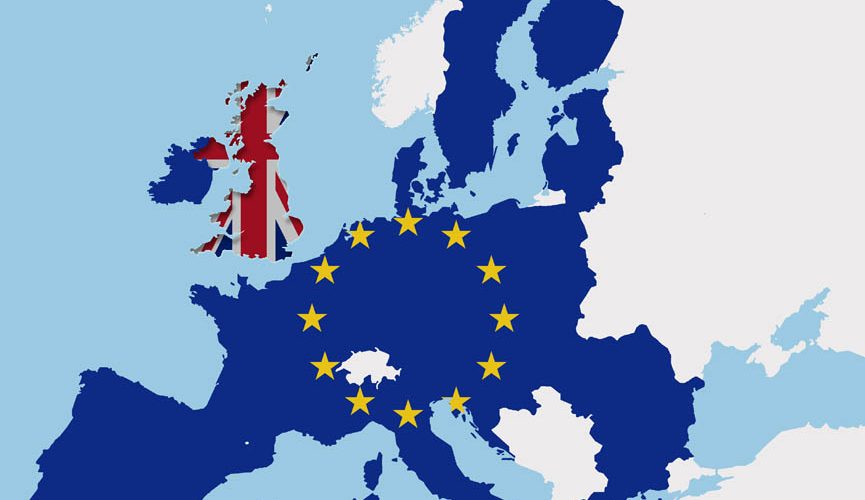EURIS Outlines Business Needs for the End of Transition
EURIS outlines the key needs for the end of the transition period
Maintaining Supply and Supply chains
To keep products supplied to UK infrastructure, buildings and consumers we need assurance that Goods will be able to move across the UK/EU and GB/NI borders without significant delays.
More organised manufacturers within trade associations have made preparations with freight forwarders etc to ensure accurate documentation but fear the effect of the wider mass of mis-documented supplies causing hold-ups as well as the sheer volume of additional checks causing logjams, as detailed in Government planning documents.
Ask: Maximum Clarity over customs requirements and sympathetic handling for businesses seeking to comply.
Product Marking
Longer-term, confusion over the correct product compliance rules and markings has the potential to either prevent legitimate supplies due to uncertainty over application or for the GB market to become a free-for-all for non-compliant goods that could not enter the EU market. Market Surveillance must work according to clear guidelines made known to industry well in advance and must apply those consistently.
Ask: Comprehensive regulation and guidance on product marking, lengthy introductory periods followed by robust market surveillance.
Regulatory Cooperation
Regulatory Cooperation with the EU is essential to avoid unintended technical barriers to trade arising due to deviation by either UK or EU from recognised international standardisation methods. A formal system, involving industry, must be set up to exchange information on future regulatory changes to reduce the risk of inadvertently making UK products non-compliant internationally. This can also be instituted in the UK’s future FTA arrangements with other global markets.
Ask: A standing UK, and ideally UK/EU, Regulatory Committee with industry representation to monitor new regulatory proposals to avoid unnecessary technical barriers to trade.
Keeping business running
Manufacturing of technical products depends on a steady supply of skilled labour at all levels from management to research to production and skills shortages are already damaging UK competitiveness. Changes to UK rules will deter many who would previously have applied from the EU and salary-level requirements may prevent recruitment of essential overseas staff for vital but lower-paid roles.
Ask: Sympathetic treatment for the needs of industry in tackling the skills shortage and accessing overseas labour
Maintaining GB/NI/RoI trade
Most of our members supply between GB and NI, many have manufacturing or distribution centres in NI, many treat the UK and RoI markets as a single business unit. It is essential that there is a high level of cooperation on both regulatory issues and customs administration between the UK and EU to keep trade flowing, including trade between GB and NI. As noted, manufacturing industry is eager to provide input on the regulatory issues that may raise potential barriers as well as on the trade routes where both compliance and surveillance concerns will arise.
Ask: Clear guidance for additional requirements for GB/NI trade and a cooperation structure with the EU (with industry involvement) to minimise friction for both GB/NI and UK/EU trade.
Industry Preparedness
EURIS has maintained intensive dialogue with Government and our member companies to provide the vital information link for business readiness for end of Transition. Our ability to keep industry fully prepared is hampered by gaps in available information and easements as mentioned above but further by the fact that not all businesses choose to join their industry association. If Government encourages those companies to join the industry effort, it will enable vastly more effective communication with business across the board.
Ask: Government encouragement for UK businesses to join their relevant Trade Association to easily access key official messages and tailored guidance for their business sector.
Understanding FTA Requirements
If and when an FTA is agreed between the UK and EU, to claim preferential tariffs exporter will need to prove their Goods are of UK origin based on the Rules of Origin in the FTA. These can very significantly in terms of the percentages of UK-sourced materials and components required to qualify and businesses may have only a few weeks or days to learn, understand and apply those Rules to, in some cases, hundreds of separate products and make declarations from 1st January 2021to gain the benefits of the FTA. It is also possible that some third-party audit and certification of product origins will be required by the FTA.
Ask: A derogation period to be agreed during which Origin declarations will not be required and a comprehensive Government education and facilitation process to allow for the simplest possible process.

